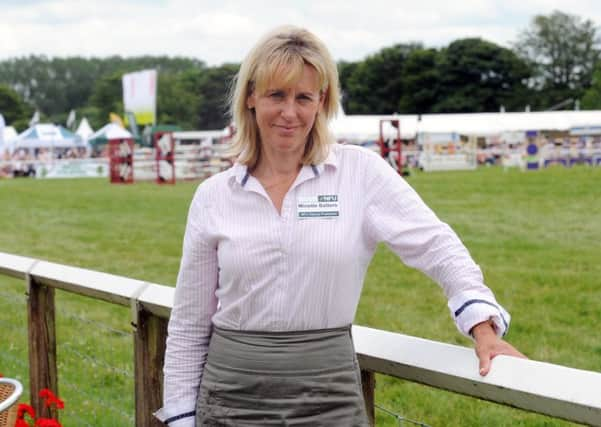Trade will most define farming's new era, deptuy NFU leader says


Speaking at this week’s Northern Farming Conference in Hexham, the Wiltshire-based farmer told around 200 delegates that food production had slipped from being a government priority but that UK agriculture approaches its future outside the European Union with the most solid foundations since BSE and Foot and Mouth ravaged countryside livelihoods.
The theme for the meeting was ‘taking back control’ and before handing over to Ms Batters, Andrew Robinson, head of agriculture at Armstrong Watson Accountants, urged farmers to focus on what they can control and influence as they prepare their businesses for the unknown Brexit landscape.
Advertisement
Hide AdAdvertisement
Hide AdMs Batters explained how she had taken control of her own destiny by turning a derelict farm she took on in the mid-90s into a successful limited company that sees her run a herd of pedigree Hereford cattle and 100 continental X suckler cows, all the while diversifying as a wedding venue and continuing her original catering business.
Looking at her business with Brexit in mind, she said comparing the performance of her Herefords and continentals was a good benchmarking exercise ahead of a potential trading scenario where British beef could be competing with Argentinean beef for shelf space.
On the issue of trade post-Brexit, she went on to say: “Europe is a key market, we have always said it from day one - 500 million predominantly wealthy consumers on our doorstep, 40 per cent of our lamb, 75 per cent of our wheat and barley, 80 per cent of our dairy products going into Europe. Europe matters. We need to have access to the European market.
“The impact of a bad trade deal and not having access to the European market and opening our doors to the rest of the world - and we should be very mindful that this is repeal of the corn law politics - if this goes wrong and we do open the floodgates, that is really going to shape our landscape and that is the conversation I’m having with the Green Alliance and others. Focus on the first fence, focus on the trade deals, the other conversations can come after that.
Advertisement
Hide AdAdvertisement
Hide Ad“We do not want a no deal situation in March 2019. We have to have a commitment for a transition and then to achieve that free trade deal. It is essential.”
The union chief identified labour as the other key issue, explaining that a foreign workforce, 80,000-strong, helps plant, pick and pack British fruit, vegetables and flower, and that between 50 and 80 percent of food processing jobs were the domain of EU workers.
Ms Batters said: “Our conversations with Chancellor Philip Hammond and Secretary of State Michael Gove talking about the challenges of labour, they are very much fixated on mechanisation and automation as the route. We are very mechanised and automated. Yes there are opportunities, but this is a challenge and we need to build bridges if we are going to get to where we need to get to.”
She said Brexit was also a chance to drive real regulatory change, particularly on pesticides, and that there has never been a greater need for “a really bold plan” for food production as part of the industry’s “new deal with society”.
Advertisement
Hide AdAdvertisement
Hide Ad“This is our opportunity to really show Europe, the Government’s opportunity to show Europe, actually how a CAP (the EU’s Common Agricultural Policy) reform can work,” she said.
Ms Batters chairs a group of representatives from all UK farming organisations and from all devolved administrations.
“We have to reposition where food and farming sits in the eyes of government. To speak with one voice is absolutely vital,” she said. “It is really important that we agree on a UK framework.”
She went on to highlight the importance of the Red Tractor food assurance scheme.
Advertisement
Hide AdAdvertisement
Hide Ad“Currently it is used on £13bn worth of British food and... we may well have the opportunity to build a British brand but that takes time and this is where it starts.
“It is really important that the devolved administrations really buy into the bigger picture that is the over arching message of British. Yes we want more Scotch beef, yes we want more Welsh lamb, there are great opportunities in Northern Ireland too but we need that over arching mechanism.”
Summing up, she urged farmers to examine their business models, engage with their neighbours and learn to collaborate so that the industry takes control of the Brexit challenge in the best way it can.